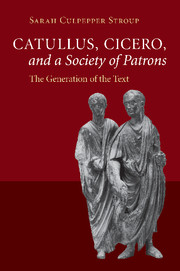Book contents
- Frontmatter
- Contents
- Preface and acknowledgments
- List of abbreviations
- Introduction
- I HOW TO WRITE ABOUT WRITING
- 1 When? Otium as “time to write”
- 2 What? Munus as the “gift of duty”
- 3 Where? Libellus: polished and published
- II THE TEXTUALIZATION OF DISPLAY
- III THE MATERIALIZATION OF THE TEXT
- Epilogue
- Appendix: What “Society of Patrons”? A prosopography of the players
- Bibliography
- Index locorum
- Index rerum et nominum
1 - When? Otium as “time to write”
Published online by Cambridge University Press: 04 August 2010
- Frontmatter
- Contents
- Preface and acknowledgments
- List of abbreviations
- Introduction
- I HOW TO WRITE ABOUT WRITING
- 1 When? Otium as “time to write”
- 2 What? Munus as the “gift of duty”
- 3 Where? Libellus: polished and published
- II THE TEXTUALIZATION OF DISPLAY
- III THE MATERIALIZATION OF THE TEXT
- Epilogue
- Appendix: What “Society of Patrons”? A prosopography of the players
- Bibliography
- Index locorum
- Index rerum et nominum
Summary
THE SOCIOECONOMIC ORIGINS OF LITERARY LEISURE
The works of André and, more recently, Toner have been instrumental to an overarching understanding of the definitions, form, and function of otium in the Roman world. While André's relation of otium to a Hellenistic ideal of leisure time is useful to the present study, he focuses on the uses of the term (and its related concepts) in the political sphere, and gives little consideration to the function of otium as a temporal and social marker in the literature of the late Republic. Toner's discussions are more directly relevant to the literary circumstances of the late Republic, and his remarks on Cicero's interest in the construction of an “ideal” of leisure do much to get at the problems at stake in this period in the intellectual realm. The textual connotations of otium as it is used in the late Republic, however, remain largely unexplored by recent scholarship.
I start, then, with a brief consideration of why and when otium might have shifted into the textual realm and a short survey of otium as it functioned in the New Comedy of the late third and early second centuries BCE. I turn then to the use of otium in the late Republic, marking especially the semantic and spatial distinctions between otium in the city and otium in the textual world.
- Type
- Chapter
- Information
- Catullus, Cicero, and a Society of PatronsThe Generation of the Text, pp. 37 - 65Publisher: Cambridge University PressPrint publication year: 2010



